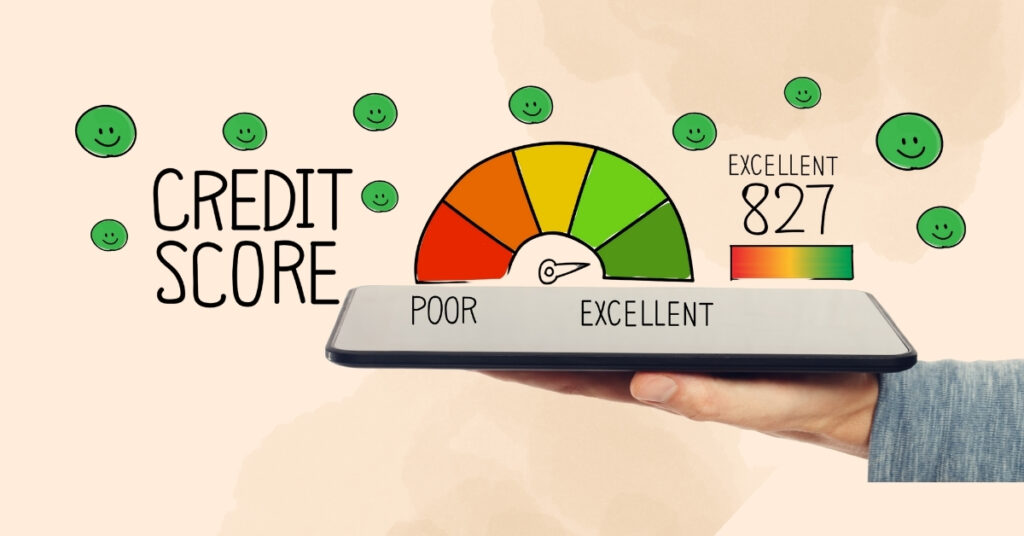Boost Your Credit Score in 2025
Having a good credit score is essential for securing favorable interest rates, whether you’re applying for a mortgage, auto loan, or credit card. A strong credit score can also help you secure better terms for business loans and increase your chances of approval for rental applications. However, if your credit score is less than stellar, it can be challenging to navigate these financial opportunities.
Fortunately, boosting your credit score is achievable with a few deliberate steps and some patience. This guide offers a comprehensive step-by-step plan to help you improve your credit score in 2025 and open doors to better financial opportunities.
Why Your Credit Score Matters in 2025
Your credit score is a numerical representation of your creditworthiness, calculated using your credit history and other financial factors. Lenders, insurers, and even potential employers rely on your credit score to determine your financial reliability. In 2025, a good credit score has become more important than ever for securing the best interest rates, qualifying for loans, and even negotiating favorable terms with financial institutions.
A strong credit score not only gives you access to lower interest rates but also provides greater financial flexibility. Conversely, a low credit score can limit your options and result in higher interest rates on loans, credit cards, and mortgages. Improving your credit score can significantly affect your financial future, making it easier to manage debt, make large purchases, and build wealth over time.
How Credit Scores Are Calculated
Credit scores are calculated using a complex formula that takes various factors into account. The most commonly used credit score model is the FICO score, which ranges from 300 to 850. Here’s a breakdown of how the FICO score is calculated:
| Factor | Percentage Impact | Description |
| Payment History | 35% | Tracks whether you pay bills on time, including credit cards, mortgages, and loans. |
| Credit Utilization | 30% | The ratio of your credit card balances to your credit limits. |
| Length of Credit History | 15% | The age of your oldest credit account and the average age of all your accounts. |
| Types of Credit in Use | 10% | The variety of credit accounts (credit cards, mortgage, student loans, etc.) |
| New Credit | 10% | The number of recently opened credit accounts and inquiries. |
By understanding how your credit score is calculated, you can target specific areas for improvement, such as reducing your credit utilization or making on-time payments to boost your score.

Top Factors That Influence Your Credit Score
Several key factors influence your credit score. Here’s a closer look at what they are:
1. Payment History
Your payment history is the most significant factor in your credit score. On-time payments help build a positive credit history, while late payments, defaults, or bankruptcies can severely damage your score.
2. Credit Utilization
Credit utilization refers to the ratio of your credit card balances to your credit limits. A higher utilization rate indicates you may be over-relying on credit, which can negatively affect your score.
3. Length of Credit History
The longer you’ve had credit accounts, the better. This shows lenders you’ve been able to manage credit over time. However, opening new accounts too frequently can shorten the average age of your credit history, lowering your score.
4. Types of Credit
Having a mix of credit types (such as credit cards, mortgages, and student loans) can have a positive impact on your score. It demonstrates your ability to manage different types of credit responsibly.
5. Recent Credit Inquiries
Each time you apply for credit, a hard inquiry is made, which can lower your score temporarily. Too many recent inquiries can signal to lenders that you may be financially unstable.
Step 1: Check Your Credit Report for Errors
The first step in improving your credit score is to obtain your credit report and check it for any inaccuracies. Errors in your credit report can drag down your score, so it’s important to correct them as soon as possible.
- Request Free Credit Reports: You are entitled to one free credit report per year from each of the three major credit bureaus (Equifax, Experian, and TransUnion).
- Dispute Inaccuracies: If you spot any errors, such as incorrect late payments or unfamiliar accounts, file a dispute with the credit bureau.
- Monitor Regularly: Regular monitoring ensures no new mistakes or fraudulent activities impact your score.
Step 2: Pay Down Existing Debt
Reducing your existing debt is one of the most effective ways to improve your credit score. High debt balances, especially on credit cards, can raise your credit utilization rate, which is a significant factor in your FICO score.
- Start with High-Interest Debt: Focus on paying down high-interest debt first, such as credit cards, to save on interest and improve your credit utilization.
- Use the Snowball Method: Consider using the debt snowball method, which involves paying off the smallest balances first to build momentum.
Step 3: Make On-Time Payments a Priority
Late payments can significantly harm your credit score, and the longer the delay, the more damaging the impact. To boost your score, make it a priority to pay your bills on time.
- Set Up Automatic Payments: Setting up automatic payments for your bills ensures you never miss a due date.
- Use Payment Reminders: If automatic payments are not an option, use reminders on your phone or calendar to stay on top of payments.
Step 4: Limit New Credit Applications
When you apply for credit, it generates a hard inquiry, which can temporarily lower your credit score.
- Apply for Credit Only When Necessary: Avoid opening new credit accounts unless absolutely necessary.
- Consider Soft Inquiries: Some lenders offer pre-qualification, which typically involves a soft inquiry that won’t impact your score.
Step 5: Keep Credit Utilization Low
Credit utilization is the percentage of your total available credit that you’re using. A lower utilization rate can help improve your score.
- Aim for Below 30%: Try to keep your credit utilization below 30% of your total credit limit.
- Increase Your Credit Limits: If possible, ask for a credit limit increase. This can lower your utilization ratio without requiring you to pay down debt.
Step 6: Build Credit with a Secured Card or Loan
If you have limited or poor credit, a secured credit card or secured loan can help you build or rebuild your credit. These cards or loans require a cash deposit as collateral, which reduces the risk for lenders.
- Use Responsibly: Make small purchases and pay the balance in full each month to demonstrate responsible credit use.
- Graduation to Unsecured Credit: After a period of positive credit history, you may be able to transition to an unsecured credit card.
Step 7: Stay Patient and Consistent
Improving your credit score is not an overnight process. It requires consistency, discipline, and time.
- Monitor Your Progress: Regularly check your credit score to see how your efforts are paying off.
- Stay the Course: Even if you don’t see instant results, continue implementing these strategies for lasting improvements.
Common Credit Myths to Avoid
There are many misconceptions about credit scores that can hinder your efforts to improve them. Here are some myths to avoid:
- Closing Old Accounts Improves Your Score: Closing old accounts can hurt your score by reducing the length of your credit history.
- You Need to Carry a Balance: Carrying a balance on your credit card is unnecessary and can harm your credit score. It’s best to pay off the balance in full each month.
- Checking Your Credit Hurts Your Score: Checking your own credit score is a soft inquiry and does not affect your score.
Best Credit-Builder Loans of 2025
Here are some of the best credit-builder loans available in 2025:
| Lender | Loan Amount | Interest Rate | Credit Impact |
| Self | Up to $1,700 | Varies | Reports to all 3 bureaus |
| CreditStrong | Up to $1,000 | Varies | No hard credit check |
| LendUp | Up to $1,000 | 6% – 36% APR | Flexible repayment terms |
| First Progress | Up to $2,000 | 9.99% APR | No credit check |
These credit-builder loans can help you establish or rebuild your credit by reporting your payments to the credit bureaus.
Best Credit Monitoring Tools in 2025
To track your progress and stay on top of your credit score, consider using these top credit monitoring tools:
- Credit Karma: Free credit score monitoring with detailed reports.
- Experian: Offers both free and premium credit monitoring services.
- IdentityForce: Comprehensive monitoring with identity theft protection.
How Long Does It Take to Improve Your Score?
The time it takes to improve your credit score depends on your starting point and the actions you take. Significant improvements can often be seen within 3 to 6 months of consistent effort, but it may take a year or more to see substantial changes.
Strategies After a Bankruptcy or Foreclosure
If you’ve experienced bankruptcy or foreclosure, rebuilding your credit will take time, but it’s possible. Focus on paying all bills on time, using secured credit cards, and demonstrating financial responsibility.
How Small Business Owners Can Build Business Credit
Small business owners can build their business credit by opening a business credit card, making timely payments, and separating personal and business finances.
Improving Credit While Managing Student Loans
To improve your credit while managing student loans, make regular, on-time payments. If you’re struggling, consider refinancing or consolidating your loans for better terms.
Avoiding Quick-Fix Credit Repair Scams
Be wary of services promising quick fixes for your credit. Legitimate credit repair takes time, and no one can remove accurate negative information from your report.
How Credit Scores Affect Loan Interest Rates
A higher credit score typically results in lower interest rates on loans. With a lower score, you may face higher rates and fewer lending options.
Setting Smart Financial Goals for Better Credit
Set realistic goals for improving your credit score, such as reducing your credit card balances, ensuring timely payments, and avoiding unnecessary credit applications.
FAQs
What is a good credit score?
A good credit score typically ranges from 700 to 749. A score above 750 is considered excellent.
Do new credit cards lower your credit score?
Opening a new credit card can temporarily lower your score due to a hard inquiry, but if you manage the account well, it can improve your score over time.
Will paying only the minimum improve my credit score?
Paying only the minimum will prevent your credit score from falling further, but it won’t significantly improve your score. Aim to pay more than the minimum whenever possible to reduce your balance faster.

